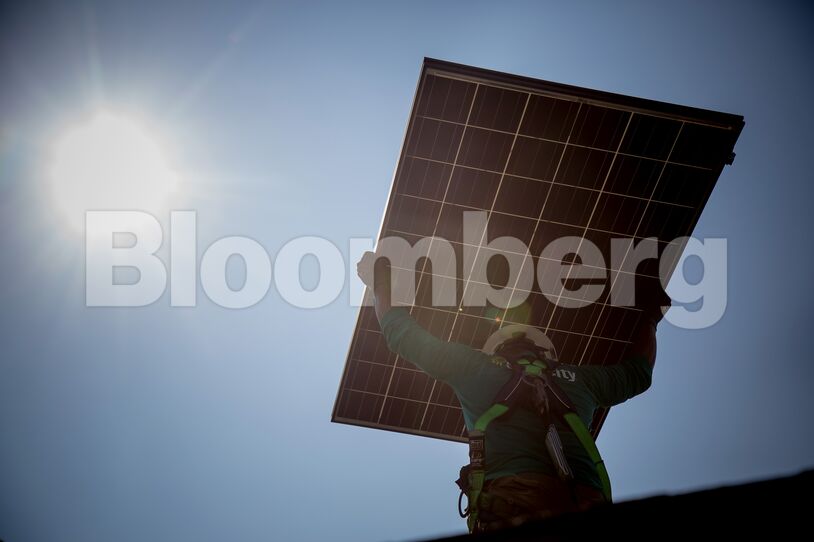By Stephen Cunningham
The debate marks one of the first times that the state subsides responsible for propelling rooftop solar into the mainstream are being challenged on a national level. It comes as the energy commission, which has a 3-1 Republican majority, has taken a series of aggressive steps in recent months that critics say undercut renewable energy.
“This would be a big power grab for FERC,” BloombergNEF analyst Brianna Lazerwitz said.
The group leading the effort, the New England Ratepayers Association, has refused to disclose its members or financial backers. Its advisory board includes former Vermont Republican Governor James Douglas and Michael Harrington, a New Hampshire state representative and ex-public utilities commissioner.
The organization’s argument is that the incentives, called net metering, involve wholesale power and, therefore, should fall under the purview of federal regulators. The group also contends the programs force utility customers at large to pay possibly billions of dollars annually to subsidize those with rooftop panels.
“Net metering policies are socially regressive,” said Marc Brown, the group’s president. “Owners of rooftop solar panels have incomes 150% higher than average, leading to a ‘Reverse Robin Hood’ effect.”
FERC declined to comment on a pending matter.
Fueling Growth
Net metering policies have been central to the explosive growth of rooftop solar in the past several years. They require utilities to pay customers for extra energy their panels produce — often at a retail rate. That’s made rooftop panels far more affordable, but it also cuts into utility revenue and forces customers who don’t have panels to pay more for the grid’s upkeep. About 40 states currently have some form of net metering in place.
Opponents of the push for FERC to regulate net metering say they’re particularly concerned the petition is being rushed through while the industry grapples with the coronavirus. In May, the commission rejected a request for comments on the proposal to be extended by 90 days. Instead, the commission granted a 30-day extension. The deadline for comments is June 15, and FERC will rule at some point after.
There’s no guarantee FERC will approve the petition. And it’s too early to say for certain what impact it would have on solar. But it would not bode well for the status quo, analysts say, based on FERC’s other recent rulings concerning clean power.
“You would probably have lower net-metering rates,” said Paul Patterson, an analyst at Glenrock Associates LLC.
Katherine Gensler, vice president of regulatory affairs at the Solar Energy Industries Association, said the notion that FERC may take jurisdiction of the issue is “deeply troubling.”
‘Dark Money’
Still, the commission may be reluctant to pick another fight with states so soon after it changed rules for the biggest U.S. power market, drawing outcry from critics who say it undercut state efforts to promote clean power and fight climate change. Plus, FERC has been reluctant to get involved with net metering in the past, BNEF’s Lazerwitz said.
“I have a feeling that’s a policy line they’re going to stick with,” she said.
Last year, the watchdog group Public Citizen asked FERC to require the New England Ratepayers Association to disclose its members when the group successfully petitioned to overturn a New Hampshire law to subsidize biomass power plants. However, the Public Citizen filing was late and so wasn’t considered. Public Citizen plans to try again this time.
Edward Fenster, executive chairman of Sunrun Inc., the nation’s largest rooftop solar installer, called the association a “dark money group” on a recent call with analysts.
Brown rejected that characterization. “NERA has hundreds of individual and business members, and all of them are utility ratepayers in New England,” he said.
It’s not just solar companies opposing the move. Brandon Presley heads the National Association of Regulatory Utility Commissioners and described the proposal as a “full frontal assault” on states.
“The federal government cannot set a one-size-fits-all type of policy,” he said.
Share This:




 CDN NEWS |
CDN NEWS |  US NEWS
US NEWS 






























